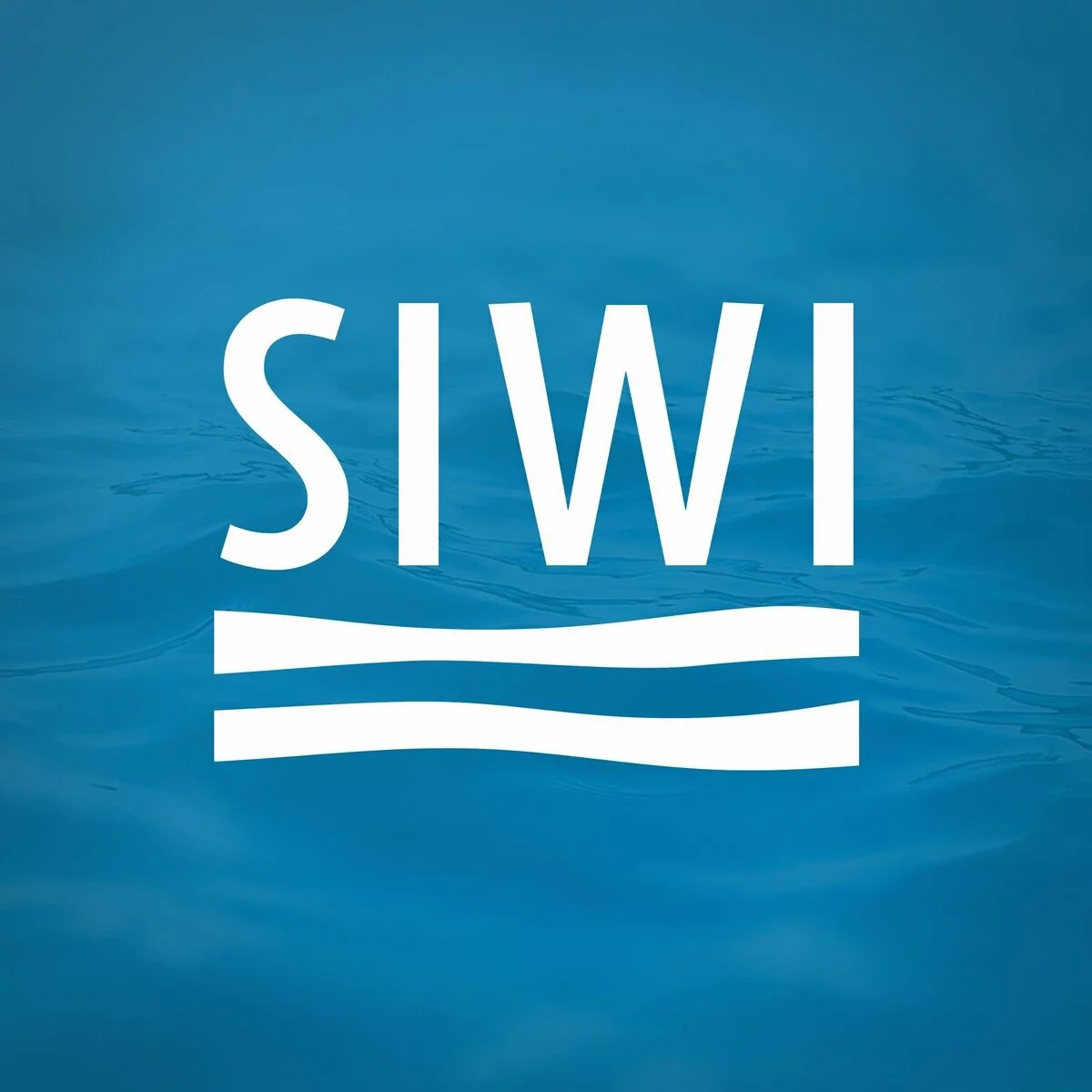
The Safe Water Network Team participated in various sessions during the Stockholm International Water Institute (SIWI) World Water Week conference in 2019.
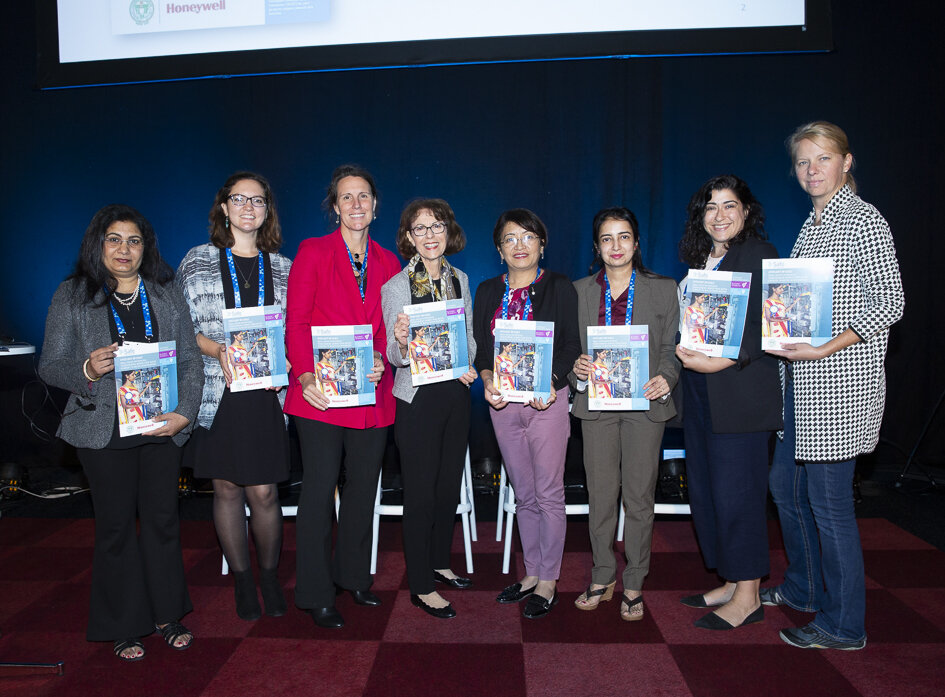
“Women and Water: Breaking Barriers and Transforming Lives”
Safe Water Network co-convened a session with USAID, Honeywell India, and Mu Gamma Consultants entitled “Women and Water: Breaking Barriers and Transforming Lives.” Moderated by Kelly Ann Naylor, who leads UNICEF’s global water, sanitation, and hygiene (WASH) program, the session brought together professionals who are focused on empowering women and bringing them into the water supply value chain.
During the session, Safe Water Network India’s Pooja Singh described an initiative piloted in the Medak District of Telangana, India—supported by the District Collector of Medak, and funded by Honeywell Hometown Solutions India Foundation—that aimed to empower women and transform their lives by enhancing their role of “water carrier” to that of “water entrepreneur.” Saha Global and Water for People shared case studies on their respective programs focused on empowering women in water, and Mu Gamma Consultants provided context for the discussion by describing how gender dynamics are deep-rooted, creating cycles of disparity that can impact women for generations.
Participants also released Safe Water Network’s latest Spotlight report, Small Water Enterprises: Transforming Women from Water Carriers to Water Entrepreneurs. Session participants shared lessons, challenges, and the results of work leveraging marketing practices to increase consumer engagement in water supply.
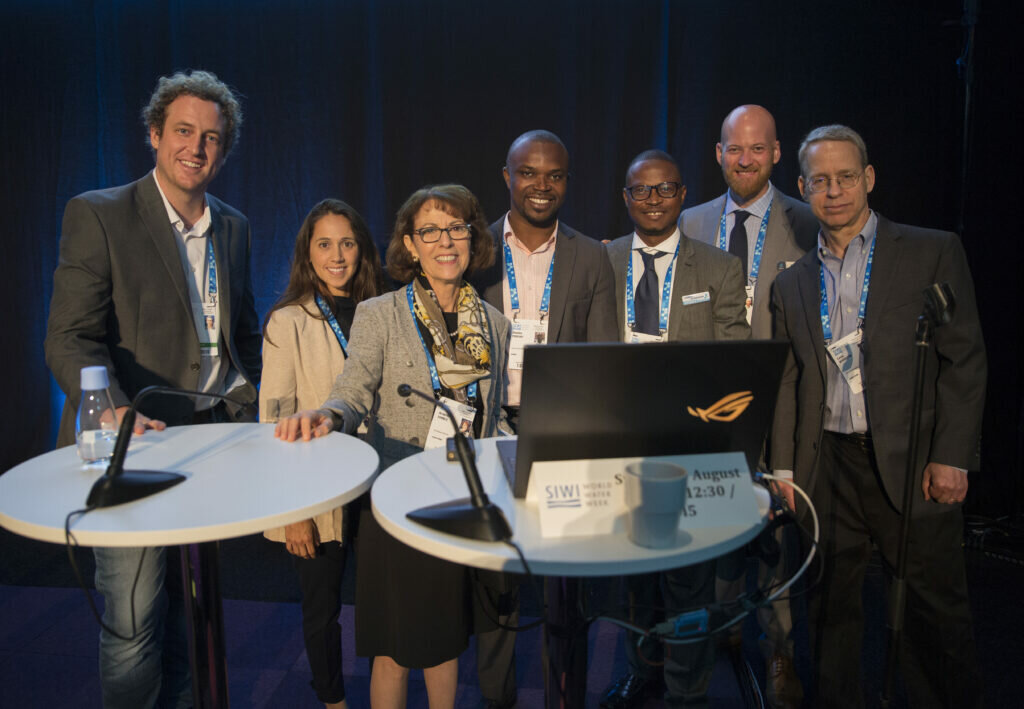
“What Do Underserved Water Consumers Really Want?”
Safe Water Network co-hosted a session entitled “What Do Underserved Water Consumers Really Want?” with the Conrad N. Hilton Foundation, Jibu, the Osprey Foundation, and Water4. Session participants, including Safe Water Network’s Charles Yeboah, shared lessons, challenges, and the results of work leveraging marketing practices to increase consumer engagement in water supply.
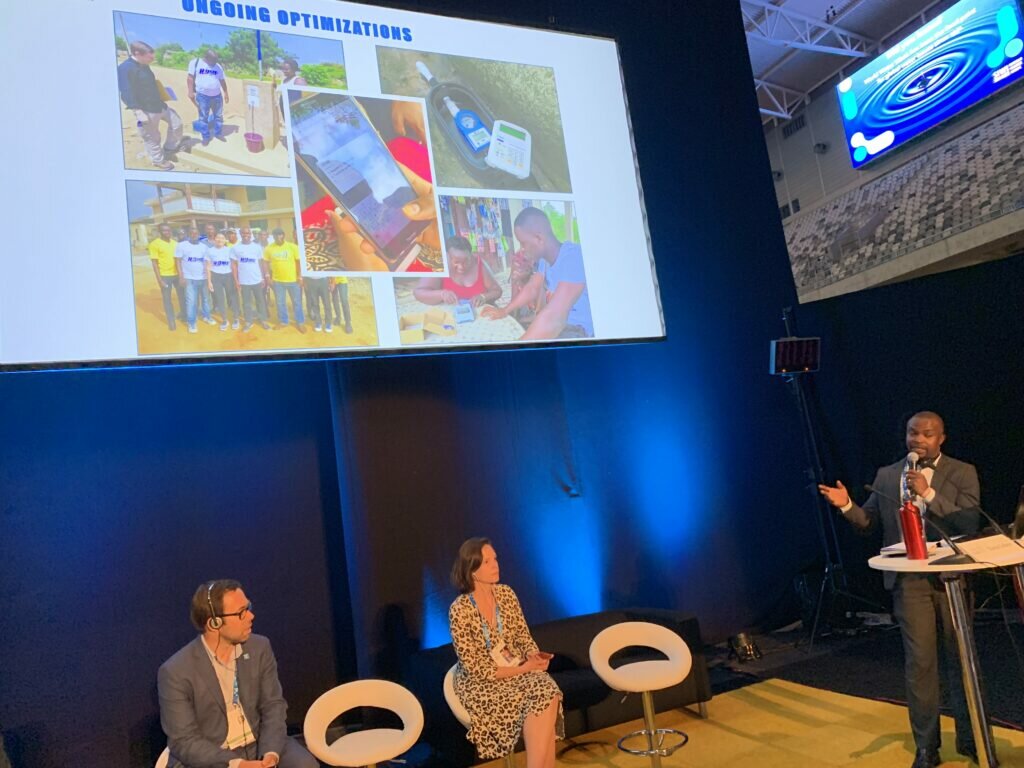
“Scaling Mobile-Enabled Water and Sanitation Models for Inclusion”
Safe Water Network’s Charles Yeboah also participated in an engaging session focused on how mobile technology is transforming the water supply sector. Hosted by GSMA, the session—“Scaling Mobile-Enabled Water and Sanitation Models for Inclusion”—included case studies from Safe Water Network, CityTaps, Loowatt, and the Kampala Capital City Authority. Participants shared practical experiences that demonstrate how mobile technology is driving down operating costs, increasing convenience, and collecting critical data from consumers to facilitate sustainable service delivery.
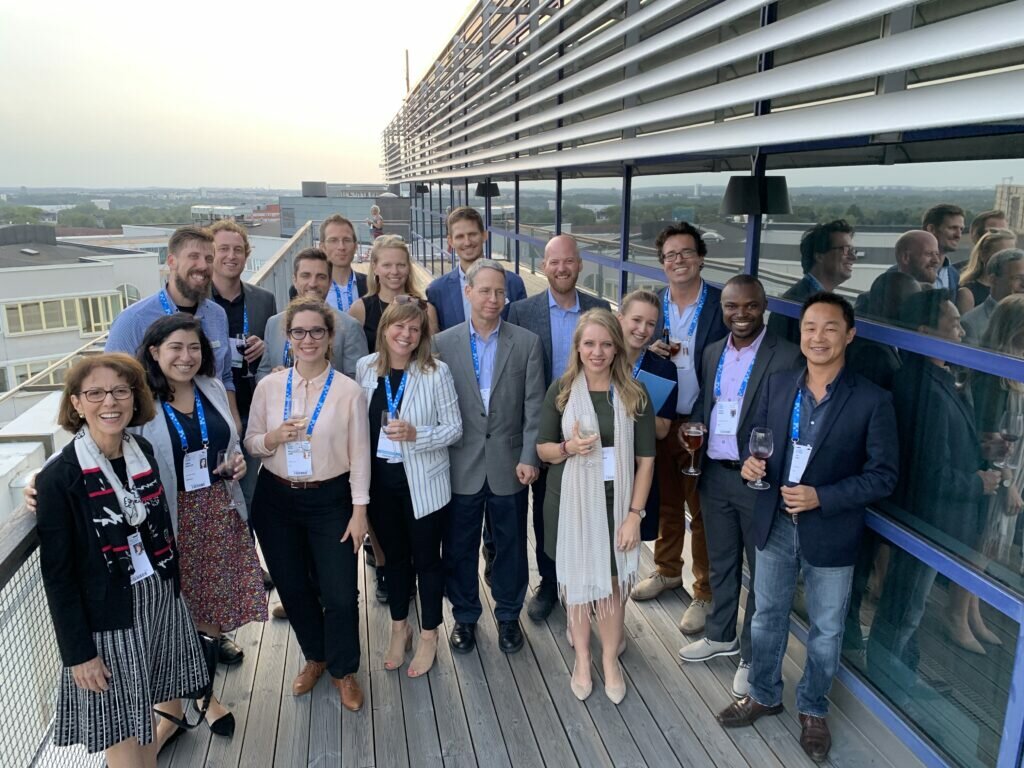 Safe Water Enterprise Community of Practice (SWE CoP) launchs partnership
Safe Water Enterprise Community of Practice (SWE CoP) launchs partnership
While in Stockholm, the Small/Safe Water Enterprise Community of Practice (SWE COP) officially launched its partnership to a crowd of funders, implementers, partners, and other sector leaders. The SWE COP—which includes Safe Water Network, Danone Communities, Jibu, Water4, Water for Good, Water for People, Water Mission, and UNTAPPED—is a collective committed to addressing the barriers to sustainability and scale within the growing water enterprise sector. Priority areas for the SWE COP include advancing working group programs and drawing from the resulting findings to advocate for improved policies, practices, and funding for water enterprises among development agencies and governments.
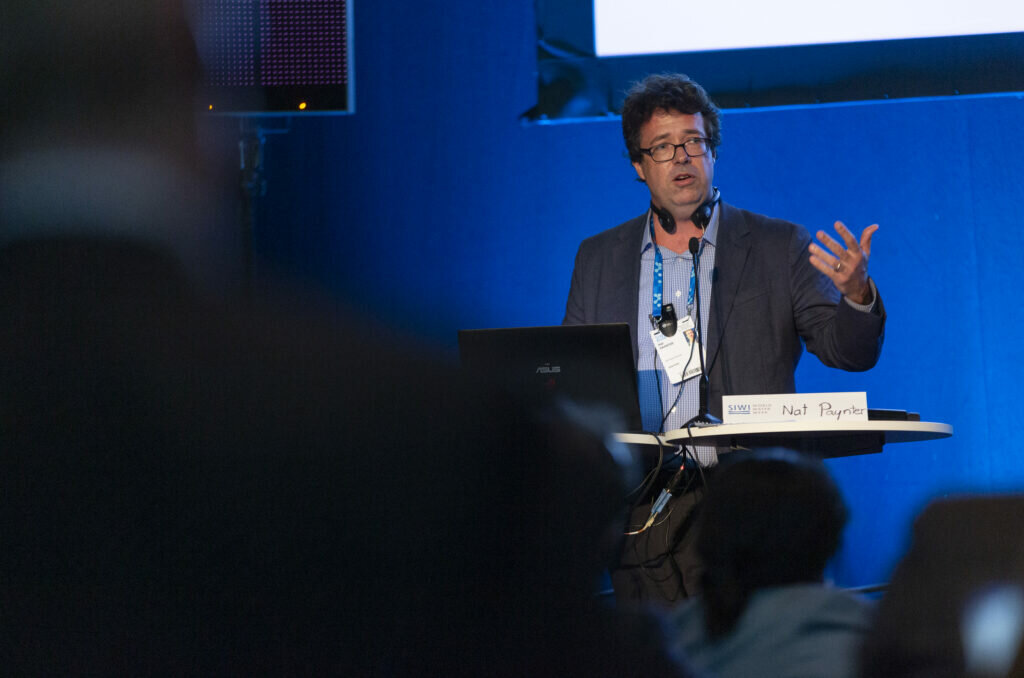 “Subsidies, Fees, and Funding Blends that Leave No One Behind”
“Subsidies, Fees, and Funding Blends that Leave No One Behind”
Safe Water Network co-hosted a finance-focused discussion which strove to demystify solutions to the challenge of affordability for consumers and sustainable revenue models for service providers. Safe Water Network’s Nat Paynter, along with co-hosts GIZ, the Osprey Foundation, and the World Bank, discussed the financial viability of water enterprises, and the implications this has on necessary financing and subsidies.
Related Resources:
Safe Water Network Spotlight report: “Small Water Enterprises: Transforming Women from Water Carriers to Water Entrepreneurs”
Read Now